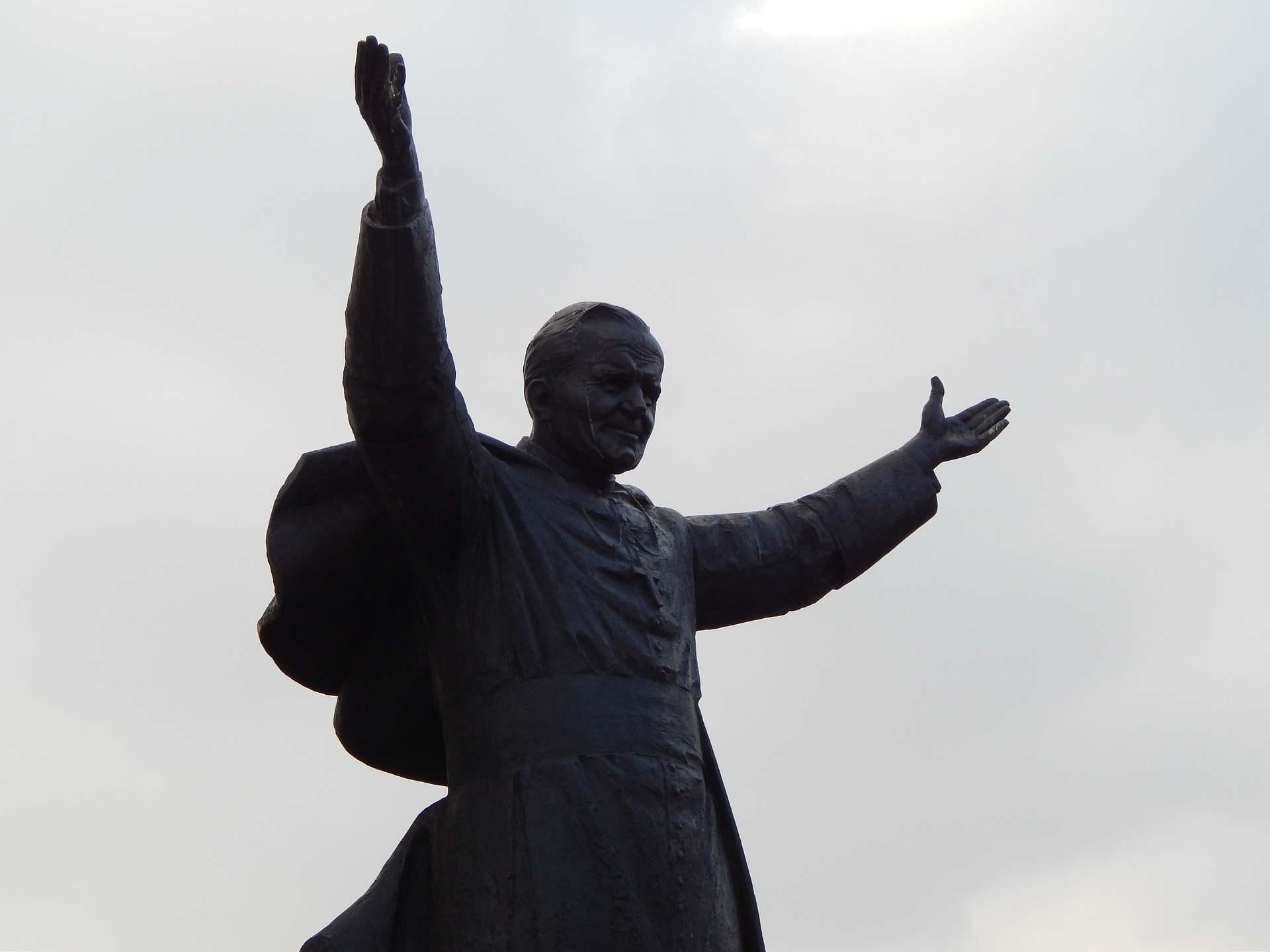
Mar 14, 2022 | SPIRITUALITY
God of our fathers, great and merciful! Lord of life and peace, Father of all people. Today we run to You and invoke Your help through the intercession of Saint Joseph, the Careful Defender of Christ. You yourself chose him so that, as the Bridegroom of the Mother of God, he would become the Head of the Holy Family. For us, too, as Sisters of Mary Immaculate, he is a Support in difficulties, but above all he is the Father and Guardian of our Religious Family. Today we stand before you in this National Shrine, to entrust our Congregation with love in our heart, to entrust you with our future, because time and everything is yours. We entrust to you our fear and doubt about what constitutes our present. Our past is in your hands. Our present is in your hands. And our future is in your hands. Each and every one of us is in your hands. Give us the courage to keep believing that we are in your hands. For your will is peace, not torment. Our fear for the future breeds torment, and it is a terrible feeling, as devastating as war. Saint Joseph, God has made you head of his house and overlord of all his possessions. We invoke you today as the Terror of Hell’s Spirits. You are here to help Archangel Michael to save our souls from eternal damnation. We fear a war that brings death and destruction. But this war is born in us and is in us, when we do not cultivate relationships, when we kill ourselves with gossip and slander, when we deviate so far from the commandments and regulations of our religious orders. Plead for us, our Holy Patron, for a peace that begins in our hearts. Let them be full of God, His love and goodness, and then we will survive. God, one and all-powerful, Damn war and overthrow the pride of the violence. You sent your Son, Jesus Christ, to preach peace to those near and far and to unite people of all races and generations into one family.
We invoke Your intercession, Saint Joseph, we also invoke You, Saint Michael the Archangel, and You, Saint Patrons of Poland and our Congregation, and we cry out in the words of Saint John Paul II: Let there be no more war – a bad adventure from which there is no turning back, let there be no more war in us – a maze of struggle and violence. Let the war in Ukraine, which threatens your creatures in the sky, on earth and in the sea, cease.
With Mary, the Mother of Jesus and ours, we implore you to speak to the hearts of people responsible for the fate of nations. Destroy the logic of retaliation and revenge, and give through the Holy Spirit new generous and noble solutions, in dialogue and patient waiting – more fruitful than violent warfare.
Father, give our times days of peace. Let there be no more war. Amen.
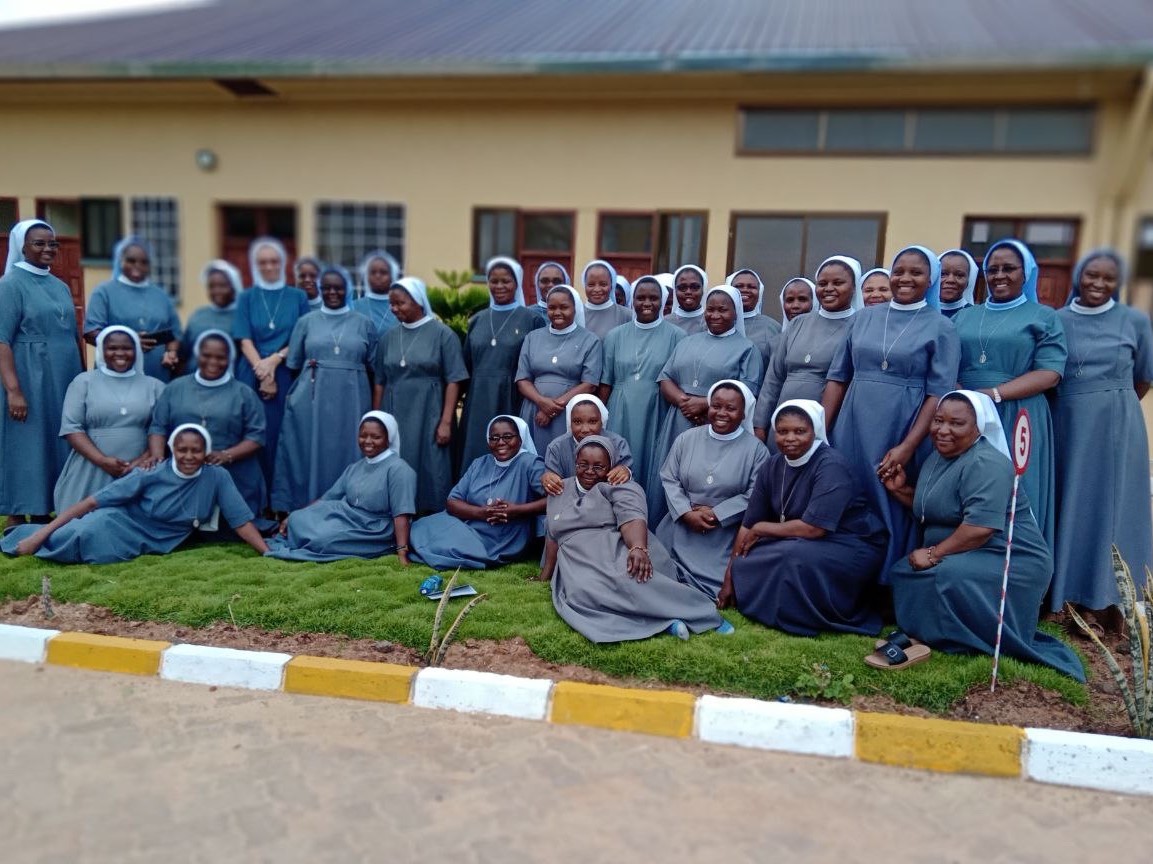
Jan 13, 2022 | SPIRITUALITY
This year in our Congregation we celebrate the 50th anniversary of our mission in Tanzania. May this prayer unite us in celebrating together.
O God the Father, we your children come before you with a heart of humility and great gratitude, you who are the source of all goodness and glory, we always give back to you those who are the giver and giver of various gifts. Dear Father, in this year of our 50th jubilee, we thank you and ask that your blessings continue to be with us and specially to live the Spirit of our Founder faithfully: as our motto guides us. LIVING IN LOVE AND UNITY, O God the Father Almighty through the intercession of our Mother Virgin Mary who is the steward of our congregation, may she be our eternal refuge. Amen.
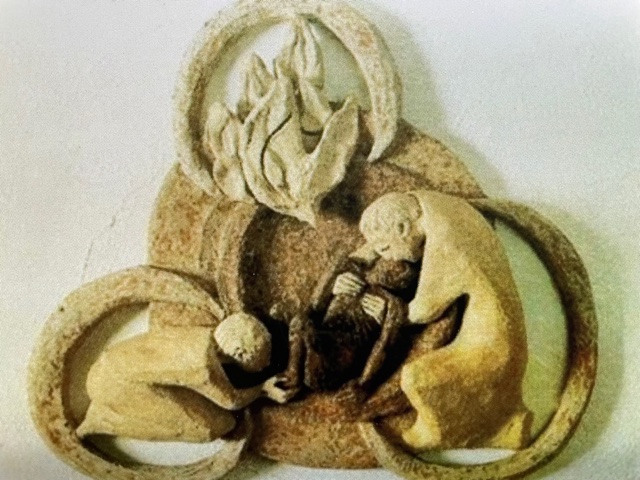
Jan 2, 2022 | SPIRITUALITY
For a year we thought about “unity”. In doing so, we orientated ourselves on the Holy Scriptures, on the times and festivals of the church year, as well as on experiences of a human and Christian life in general. If you want, you are welcome to look again at the individual topics that we have dealt with over the course of the year.
I would like to ask you the following question: Could you imagine discussing our considerations with someone who does not believe in God? My answer: I think so. Because our thoughts on unity will also be understood and affirmed by people who live without religion.
But as much as our topics can be experienced in everyday human life so far, I would like to focus on God on the last day of the month today, on the three-one God.
Trinity – a secret that says a lot
When we talk about the Trinity, we quickly say: It is a secret of our faith. That is also true, because we cannot explain this secret. I checked my sermons on Trinity Sunday. Then I spoke about what the Trinity does (Creator, Redeemer, Comforter and Companion) and how to thank and honor it. Today I want to reflect with you about what the Trinity is like: one God in three persons. Or as it says in the preface: With your only begotten Son and the Holy Spirit you (God the Father) are one God and one Lord.
Monarchy or coalition
Allow me to take a look at politics. Imagine being a queen or a king. Kings were sole rulers, did not need to ask anyone and could make self-important decisions, sometimes really as the mood took them. With tyrants and dictators, the peoples have often had to experience this painfully. Different in a democracy. Here people can choose who should rule them. And since there is not always an absolute majority, coalitions are formed. So imagine if you had to form a government and were looking for a coalition partner or two. You have to look for a partner, get to know him better, listen to what he wants, make compromises, keep looking for a dialogue after differences of opinion, and sometimes for the sake of the community forego some personal profiling (humility). Can you discover the Triune God there..?
Mission and obedience
We find further thoughts on the unity of God in the farewell speeches of Jesus in the Gospel of John. Jesus then prays for the unity of his disciples: All should be one just as we are one, I in you and you in me (Jn 17:21). Jesus had already spoken about what his union with the Father looks like: I did not come to do my own will, but the will of my Father. Unity with the Father is shown in his mission and obedience to the will of the Father. And this is not a blind or forced obedience, but a voluntary and loving obedience.
Give testimony
Closely related to his mission is the commission to bear witness of the love of the other. This is said both of Jesus, who testifies of the love of the Father, and of the Holy Spirit, who testifies of Jesus. Jesus gives an impressive testimony when he stands in front of the Roman governor Pontius Pilate: This is why I came into the world to bear witness to the truth (Jn 18:37). For Jesus, the truth is God’s unconditional love for people. For this truth he lived and even dies for it.
They should be one for the world to believe …
A look back at church history could make one pensive. The dark chapters are not just the time of the Crusades or the machinations of the Inquisition and the witch trials. Just as dark are the times when Christians quarreled and even fought with one another. I am thinking of the separation of the Orthodox Church (1054), the Reformation (1517), the schisms within the Catholic Church, where there were suddenly two popes, and of course the terrible religious wars such as in Ireland. These are testimonies that make it difficult to believe.
The balls – a lesson from God for unity
Once upon a time there was a man who knew a wonderful game. He collected colored glass balls. And when he tossed these balls through the air, they shone wonderfully in the sun.
This man had a child he was very fond of. He wanted to teach this child this game. “Look out!” Said the man, “I’m going to throw you one ball at a time. Each ball has a different color and a different name. This one is called joy, the one over there work, the one over there peace, this suffering. You should throw every bullet back to me immediately. That is the point of the game: alternating give and take. The balls only shine so brightly in flight. ”
The child understood and the game could begin. The balls flew back and forth, and in flight they shone in the sun.
But then the child wanted to keep a nice ball. It hugged her tightly. Then the ball broke. In fright he forgot to catch the next bullet; it fell to the ground and was broken into a thousand pieces. The more the child tried to hold onto the balls, the bigger the pile of broken pieces became; the child was cut, hurt and bleed.
The man who played with the child was so sorry. And because he loved the child so much, he came over, bent down, and carried away the broken pieces. He cut himself too and was bleeding. But every wound he got himself healed a wound on the child at the same time. After all, it was so cut up that it seemed impossible to continue the game. But he was ready to keep playing.
But slowly the child understood. And when the ball of joy came, he threw it back in a high arc to the man, and the ball shone in the sun. And when the suffering came, he did the same. Every movement was directed towards the man now. And see, the game was very good.
Prelate Dr. Stefan Dybowski
December 6th, 2021 Monthly lecture St. Augustinus Monastery, Berlin-Lankwitz

Jan 2, 2022 | SPIRITUALITY
November
November brings our future to life like no other month. It reminds us that at some point we must give our lives back into the hands of the Creator. But it also has a promise: eternal life with God.
If you take these two messages seriously, think about the specific consequences. What if God knocked on me in a week, or even tomorrow?
Lichtenberg: Everything in view of eternity
In the diary that the Provost of Berlin Cathedral Bernhard Lichtenberg wrote while in custody, we find the sentence: Today I want to see everything in the light of eternity. Lichtenberg will have had his future path quite clearly in mind. So he took earthly things very seriously, but saw everything under the standard of eternity. A good basic attitude for a spiritual life.
Spiritual Exercise: What else do I want to do with a view to eternity? What do I want to change? What do I want to let go?
The wide ditch
You know the parable of poor Lazarus and the rich man. Both have to die, one goes to heaven (Abraham’s womb), the other has to suffer in hell. Heaven and hell are simply described here by reversing the living conditions: Whoever has had a good time in this world has to suffer, and whoever had to suffer, paradise is now given to him.
This explanation makes me very thoughtful, almost afraid. Because I have to say that I’m doing really well in this world. Do I then have to expect the same fate as the rich man?
But Jesus gives another explanation in his parable. There is talk of a wide ditch that separates the two from each other. Who made this trench? God? And so slowly the rich come to the realization that they dug this wide ditch, back in their lifetime, when did not see the poor and did not want to see them either.
Another spiritual exercise: Where do I see such rifts in my life? What or who do these trenches separate from me? Am I ready to see such rifts and maybe even to bridge them?
None of us live for himself … (Rom)
The second message of November is the promise: And await a new life in the glory of God.
I would like to give you a text from the Holy Scriptures that you know from many funeral services. The apostle Paul wrote:”
For none of us live for ourselves alone, and none of us die for ourselves alone.
If we live, we live for the Lord, if we die, so we die for the Lord.
Whether we live or die, we belong to the Lord. (Rom 14: 7-8)
In the talks, reference is often made to the second line, the relationship with God. But before that, Paul puts our relationship with one another. None of us live for ourselves, and none of us die for ourselves.
Our relationship with God is therefore closely related to the relationship we have with people. And if Paul then emphasizes that we have to give an account to God (Rom. 14:10, 12). None of us live by ourselves. A sentence that could be interesting for me in the long term.
Karl Borromeo – Reformer of the Church
None of us live for ourselves. What does this mean, and what consequences this also means for the communion and unity of the church, can be seen very well in a reformer: in St. Charles Borromeo. Let’s go back to the 16th century. Martin Luther’s theses caused an uproar in the Church in Europe. The church was divided. How could one find the unity again? The answer was sought in a council: the Council of Trent. One of the key figures at this council was St. Charles Borromeo. His uncle was Pope and he had a brilliant career ahead of him. But he has withdrawn completely, was very undemanding, and has dedicated all of his work to the church. One life for – in this case specifically for the Church. Unity was more important to him than himself.
The coming Christ
The time of Advent stands before us, the time when we will be reminded of the second coming of Christ. We as Christians have apparently got used to it: if he hasn’t come back for 2000 years, then it won’t happen in the next 20 or 30 years either. It looks different when it comes to my very personal life. It can happen very quickly that I stand before the face of God. The broad rift could then be a crucial issue. So maybe for this Advent you will take the will of our founder Rev. Johannes Schneider again to hand, or even better to heart.
Prelate Dr. Stefan Dybowski
November 22nd, 2021 monthly lecture St. Augustinus Monastery, Berlin-Lankwitz
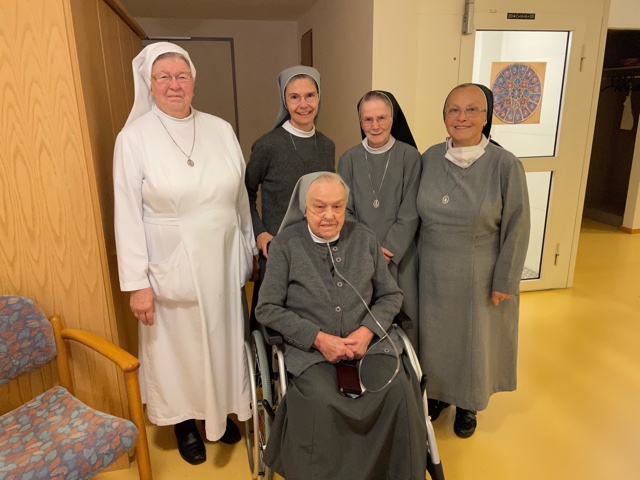
Nov 25, 2021 | SPIRITUALITY
Memories of German history
Do you remember? The occupations of the German embassies in Prague and Warsaw in 1989, the opening of the border between Austria and Hungary, the Monday demonstrations in Leipzig and other places, the first opening of the Wall on November 9, 1989 and finally the Day of German Unity on October 3, 1990. Back then, they were eventful and eventful weeks that we all experienced with excitement. And many feelings accompanied us: worry and great fear, but also hope and joy. And when the unification treaty was finally signed, quite a few also folded their hands and thanked God. German unity was not just the work of people, it was also felt as a gift, a gift from above, from God.
There are two extreme positions that could be associated with this topic of “gift unity”, and which I would like to briefly suggest here.
Put your hands in your lap
On the one hand, one might think: if unity is a gift, then I cannot and do not need to do anything. Then I can put my hands in my lap and wait for unity to come from God. I would like to warn against this assumption. I am sure that German unity would never have come about without the efforts of many on both sides: politicians, scientists, representatives of the churches, artists and many ordinary citizens.
Furthermore, I am not only thinking of German unity. Christians are also divided into different denominations. And I am grateful and happy that many Christians do not put their hands in their laps and wait for God to make a difference, but rather that they cooperate and approach one another, even if they know that unity is ultimately a gift.
Ordered or forced unity
Unity cannot be made, let alone order. This is shown by the recent history of several European countries. The Soviet Union quickly fell apart during the time of glasnost and peristroika. In the former Yugoslavia, the 7 republics immediately declared their independence after Tito’s death. And even in countries like Great Britain or Spain, unity is sometimes at stake. A prescribed or even enforced unit seldom lasts.
So reality lies in the middle. Unity is a gift, but I can do a lot to ensure that this gift can become and remain a reality.
Appreciation as a breeding ground for unity
Unity needs another breeding ground for it to grow. This breeding ground is mutual respect. There are wonderful examples of this as well. Pope Paul VI met the Patriarch Athenagoras in 1964 and thus took an important step towards bringing the Orthodox and Catholic Churches closer together. And with his visit to Warsaw in 1970, Willy Brand certainly also set a milestone on the way to German unity. Of course, you cannot do the unity with such activities. With certainty, however, one can create the conditions on which the unity can then grow. Receiving gifts and doing something for them are not mutually exclusive.
Resignation and accommodating
The mutual appreciation that I show for the other is certainly a great gift that contributes a lot to unity. But there are other gifts that don’t have much to do with giving at first.
Even as a child I learned that I had to forego some things in the family and make compromises. I experienced that with my parents, then with my siblings and also with me. In the beginning, this waiver was certainly not voluntary, but rather forced. But later I was able to experience that this kindness and renunciation also contributed to the fact that we grew together as a family and that we are still in good contact with one another today.
Compromise and renunciation as our parishes grow together are of very topical importance. Here, a waiver is often necessary, e.g. when choosing a church as a parish church or when redistributing financial resources. If there is only anxiety that I don’t miss out, unity can never grow. Only when the common whole becomes more important to me than my own interests can a parish arise.
Gratitude: maintaining unity
You put a bouquet of flowers in the water to keep the flowers fresh for a long time. I go out carefully with a given bike so that I can ride it for a long time. Gifts want to be cared for. This is certainly the most beautiful way of appreciating gifts and thanking the giver of the gifts. That applies to the German unity that was given to us 30 years ago. This also applies to the unity of Christians, which we continue to strive for. And that certainly also applies to the unity in a convent, a religious community, a presbytery, a congregation.
Prelate Dr. Stefan Dybowski
7th, October 2021 monthly lecture St. Augustinus Monastery, Berlin-Lankwitz
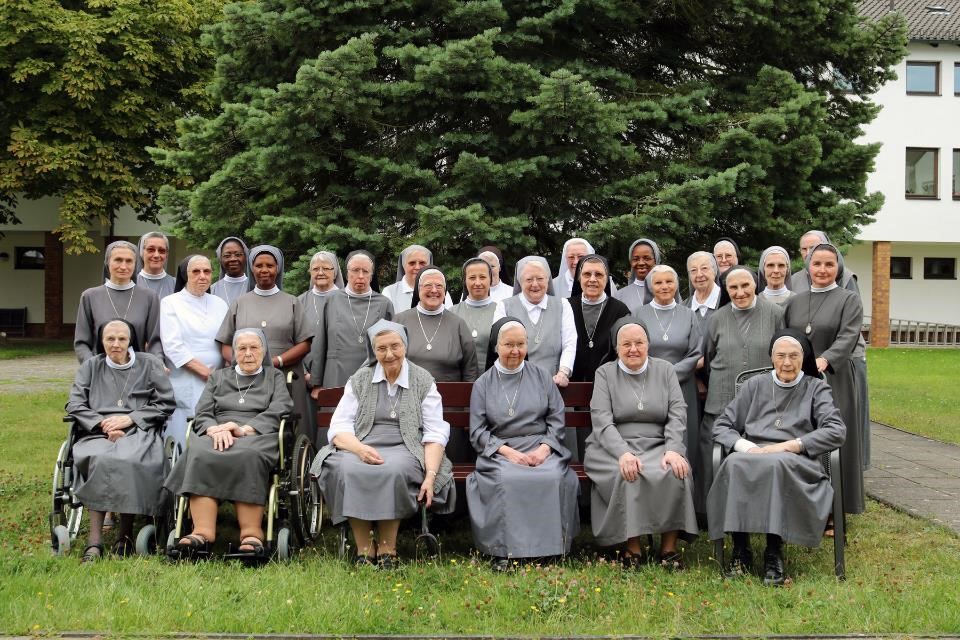
Oct 20, 2021 | SPIRITUALITY
In the course of the many thoughts that we have already given ourselves on the subject of “unity”, one thing has become very clear. Unity is not something that is there. Unity are relationships that arise, that can grow and be deepened, and which must be dealt with carefully so that they are not lost (see also the letter from Sr. Sybilla). So today I want to reflect with you on how unity can emerge and be deepened.
Unity starts with me
There is a realization that we make in the course of our lives – one sooner, the other later, and which is often very painful: I cannot bake my fellow human beings, i.e. bend them into the way I would like them to be. That would only be done by force and often takes bitter revenge. World history knows numerous examples of this, and many people can also tell of these experiences: parents, teachers, pastors. This is also an important insight for any community. I cannot achieve unity by using rules and regulations to urge others to do something together.
I cannot change the others. Change can only start with myself. This is how the first step towards unity begins with myself.
Unity grows gradually
One of the most famous parables of Jesus is the parable of the seeds. Nature takes a lot of time to grow and bear fruit. What applies to nature also applies to human life. Here are two current examples:
– German unity
We can learn a lot from German history on the subject of unity. One of these experiences is that unity is slow to develop. After the period of demarcation in the “cold war”, a policy of rapprochement between the two German states followed in Germany. And it was a long road that led to reunification.
– ecumenism
There are similar experiences in the field of ecumenism. Here, too, there are many efforts to bring the two major Christian denominations closer together.
Above all, it becomes clear that this approach is from below. People get to know each other, discover the lovable sides and strengths of the other and can thus overcome separations and divisions.
Unity costs something
Do you know the saying: “What doesn’t cost anything is also worth nothing.” I don’t think very much of this saying. It is similar to the misconception that medicine has to taste bitter if it is to help. But with the unity, I would say that it has its price. What does the unity cost?
Memories of school days: some children learned to read and arithmetic faster, some children took longer to do so. Our teacher had often shown a lot of patience so that the weaker students could also follow and the class would not be split into two groups.
Experiences on a hike together: the fast in the group had to wait again and again so that we as a group could reach the goal together.
Patience, consideration, the necessary humility … these are important steps on the way to unity.
Give a piece of you
I would like to tell you the most beautiful, but certainly also the most expensive price for the unity with the story of the salt man.
A salt man finally came to the sea on his wandering through the endless deserts. He had never seen the sea and stood in front of it, completely fascinated. He was impressed by the power of its waves and felt the freshness that emanated from it.
“Good day!” Said the salt man. – “Hello,” answered the sea. Who are you? ”Asked the salt man. – “I am the sea,” answered this one. “What does that mean?” Asked the salt man. “I don’t know you yet.” – “If you want to get to know me, you have to come closer.”
So the Salt man took a step closer, and then another step and another, until one foot was in the water. And indeed: suddenly he felt the wonderful freshness of the sea and its power. But when he came out of the water again and looked at his foot, the foot was gone.
“What did you do with my foot?” Asked the little salt man excitedly? “But the sea stayed calm:“ If you want to get to know me, you have to give a piece of yourself. ”-“ If you want to get to know me “You have to give a piece of yourself,” repeated the salt man, in order to memorize it well. And again he put one foot into the sea, and then the other, and on and on he went in and had the exhilarating feeling of getting to know the sea better and better.
(from Chinese)
If you want to get to know me, you have to give something of yourself … that applies to the emergence and growth of relationships, that also applies to the unity of a community.
Prelate Dr. Stefan Dybowski
13th, September 2021 monthly lecture St. Augustinus Monastery, Berlin-Lankwitz






